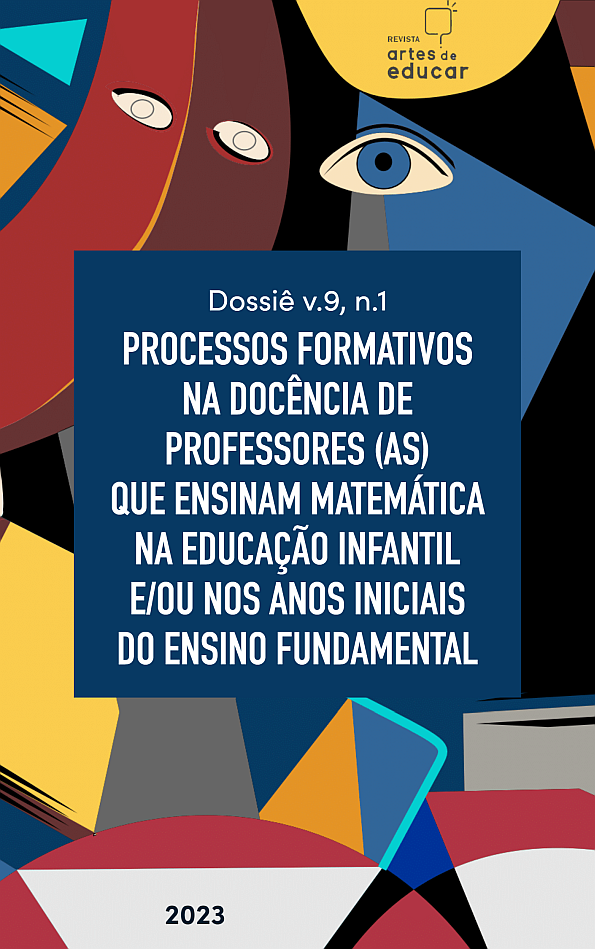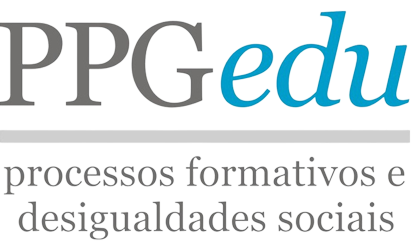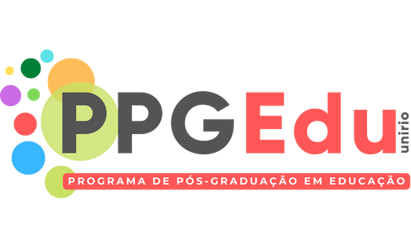MOBILIZING MATHEMATICAL KNOWLEDGE FOR THE FRACTIONS TEACHING WITH TEACHERS IN THE EARLY YEARS OF ELEMENTARY SCHOOL
DOI:
https://doi.org/10.12957/riae.2023.70517Keywords:
Mathematics Education, Inservice Teacher Education, Mathematical knowledge for teaching, Teaching fractions, Elementary School.Abstract
This study aimed to identify, describe and characterize mathematical knowledge for teaching fractions, that emerged in a discussion about elementary school students' responses to questions posed to them in real elementary school classrooms. In the context of continuing education, we invited 18 elementary school teachers to reflect on the answers given by elementary school students to problems involving introductory notions related to the fraction concept. The theoretical framework that supports the study was the model (Mathematical Knowledge for Teaching) developed by Ball and her collaborators. From the transcripts of the recordings of the meetings, the records produced by the participants, and the researcher's field diary, we were able to gather data on mathematical knowledge for teaching fractions that emerged in discussions on the subject with the participating teachers. The results show that these discussions favored the mobilization of different categories of mathematical knowledge for teaching fractions, such as: how to quantify a part of a whole (relating drawing and symbol); how to compare fractions in the case of part-whole interpretation; how to add and subtract fractions; some of the most common mistakes usually made by students, among others. Studies like this also contribute to understanding professional learning processes, especially those regarding the development of mathematical knowledge for teaching.References
BALL, Deborah Loewenberg; THAMES, Mark Hoover; PHELPS, Geoffrey. Content Knowledge for Teaching: What Makes It Special? Journal of Teacher Education, London, v. 59, n. 5, p. 389-407, 2008.
BEHR, Merlyn; LESH, Richard; POST, Thomas; SILVER, Edward. Rational-Number Concepts. In: LESH, Richard; LANDAU, Marsha. (ed.). Acquisition of Mathematical Concepts and Processes. Florida: Academic Press, 1983. p. 91-126.
BOGDAN, Robert; BIKLEN, Sari. Investigação qualitativa em Educação: fundamentos, métodos e técnicas. In: BOGDAN, Robert; BIKLEN, Sari. Investigação qualitativa em educação. Portugal: Porto Editora, 1994. p. 15-80.
BRASIL. Parâmetros Curriculares Nacionais: Matemática. Brasília, DF: MEC/SEF, 1998.
CASTRO, Franciana Carneiro de; FIORENTINI, Dario. Formação docente em Matemática para os primeiros anos da escolarização: estudo comparativo Brasil-Portugal. Revista Internacional de Educação Superior, Campinas, v. 7, p. 1-26, 2021.
CERVANTES, Patrícia de Barros Monteiro. Uma formação continuada sobre as frações. 2010. 86 f. Dissertação (Mestrado em Educação Matemática) – Universidade Bandeirante de São Paulo, São Paulo, 2010.
CURY, Helena Noronha. O conhecimento pedagógico do conteúdo dos erros. In: CURY, Helena Noronha; VIANNA, Carlos Roberto (org.). Formação do Professor de Matemática: reflexões e propostas. Santa Cruz do Sul: Editora IPR, 2012. p. 19-48.
DENZIN, Norman K.; LINCOLN, Yvonna S. Handbook of Qualitative Research. London: Sage, 1994.
DINIZ-PEREIRA, Júlio Emílio. Formação continuada de professores. In: OLIVEIRA, Dalila Andrade; DUARTE, Adriana Cancella; VIEIRA, Lívia Fraga (org.). Dicionário: trabalho, profissão e condição docente. Belo Horizonte: UFMG/Faculdade de Educação, 2010. CD-ROM. Disponível em: https://gestrado.net.br/wp-content/uploads/2020/08/10-1.pdf. Acesso em: 20/01/2023.
DONÁ, Eduardo Goedert; RIBEIRO, Alessandro Jacques. Conhecimento Matemático para Ensinar Álgebra: uma análise curricular na Licenciatura em Pedagogia. Zetetiké, Campinas, v. 30, p. 1-9, 2022.
FERNÁNDEZ, Freidel Francisco Cano. Unidad didáctica para la enseñanza de los fraccionarios en el grado cuarto de básica primaria. 2014. 114 f. Dissertação (Mestrado em Enseñanza de las Ciencias Exactas y Naturales) – Universidad Nacional de Colombia, Manizales, 2014.
GATTI, Bernadete Angelina. Formação do Professor da Educação Básica: Um panorama das questões fundamentais. 2019. 1 vídeo (41m25s). Publicado pelo canal Professor Helio Dias. Disponível em: https://www.youtube.com/watch?v=NnZXyDT4PDM. Acesso em: 1 set. 2021.
GRAEBER, Anna O.; TANENHAUS, Elaine. Multiplication and division: from whole numbers to rational numbers. In: OWENS, Douglas T. (ed.) Research ideas for the classroom: middle grades mathematics. New York: MacMillan, 1992. p. 99-117.
KIEREN, Thomas E. On the mathematical, cognitive, and instructional foundations of rational numbers. In: LESH, Richard; BRADBARD, David (ed.). Number and measurement: papers from a research workshop. Columbus: Eric/Smeac, 1976. p. 108-151.
KIEREN, Thomas E. The rational number construct – its elements and mechanisms. In: KIEREN, Thomas E. (ed.). Recent Research on Number Learning. Columbus: Eric/Smeac, 1980. p. 128-152.
LA TAILLE, Yves de. O erro na perspectiva piagetiana. In: AQUINO, Julio Groppa (org.). Erro e fracasso na escola: alternativas teóricas e práticas. São Paulo: Summus, 1997. p. 25-44.
LLINARES, Salvador; SANCHEZ, MariaVictoria. Fracciones. Madrid: Sintesis, 1988.
MONTEIRO, Alexandre Branco; GROENWALD, Cláudia Lisete Oliveira. Dificuldades na aprendizagem de frações: reflexões a partir de uma experiência utilizando testes adaptativos. Alexandria: Revista de Educação em Ciência e Tecnologia, v. 7, n. 2, p. 103-135, 2014. Disponível em: https://periodicos.ufsc.br/index.php/alexandria/article/download/38217/29121. Acesso em: 8 out. 2021.
MOREIRA, Plínio Cavalcanti; DAVID, Maria Manuela Martins Soares. A formação matemática do professor: licenciatura e prática docente escolar. 2. ed. Belo Horizonte: Autêntica, 2016.
PATRONO, Rosângela Milagres. A aprendizagem de números racionais na forma fracionária no 6º ano do Ensino Fundamental: análise de uma proposta de ensino. 2011. 185 f. Dissertação (Mestrado em Educação Matemática) – Universidade Federal de Ouro Preto, Ouro Preto, 2011.
PIAGET, Jean. O Nascimento da Inteligência na Criança. Rio de Janeiro: Zahar, 1974.
ROGERI, Norma Kerches de Oliveira. Conhecimentos de professores dos anos iniciais para o ensino dos números racionais em sua representação decimal. 2015. 289 f. Tese (Doutorado em Educação Matemática) – Universidade Anhanguera de São Paulo, São Paulo, 2015.
SANTOS FILHO, Josué Ferreira dos. Investigando como professores dos anos iniciais julgam propostas de ensino para o trabalho com os números racionais. 2015. 131 f. Dissertação (Mestrado em Educação Matemática e Tecnológica) – Universidade Federal de Pernambuco, Recife, 2015.
SILVA, Angélica da Fontoura Garcia. O desafio do desenvolvimento profissional docente: análise da formação continuada de um grupo de professores das séries iniciais do Ensino Fundamental, tendo como objeto de discussão o processo de ensino e aprendizagem de frações. 2007. 308 f. Tese (Doutorado em Educação Matemática) – Pontifícia Universidade Católica, São Paulo, 2007.
SOUTO, Nayara Mariano. Percepções de futuros pedagogos acerca de sua formação matemática: estudo com licenciandos de dois cursos de pedagogia de Minas Gerais. 2016. 130 f. Dissertação (Mestrado em Educação) – Universidade Federal de Ouro Preto, Mariana, 2016.
Published
How to Cite
Issue
Section
License
Copyright (c) 2023 Revista Interinstitucional Artes de Educar

This work is licensed under a Creative Commons Attribution-NonCommercial 4.0 International License.
Authors retain copyright to their work, are permitted to publish and distribute their work online (e.g., in institutional repositories or on their personal page) at any point before or during the editorial process, as this may generate productive changes, as well as increasing the impact and citation of published work.
The acceptance of the text implies the authorization and exclusivity of the Revista Interinstitucional Artes de Educar regarding the right of first publication, the published works are simultaneously licensed with a Creative Commons Attribution-Non Commercial 4.0 International License 























